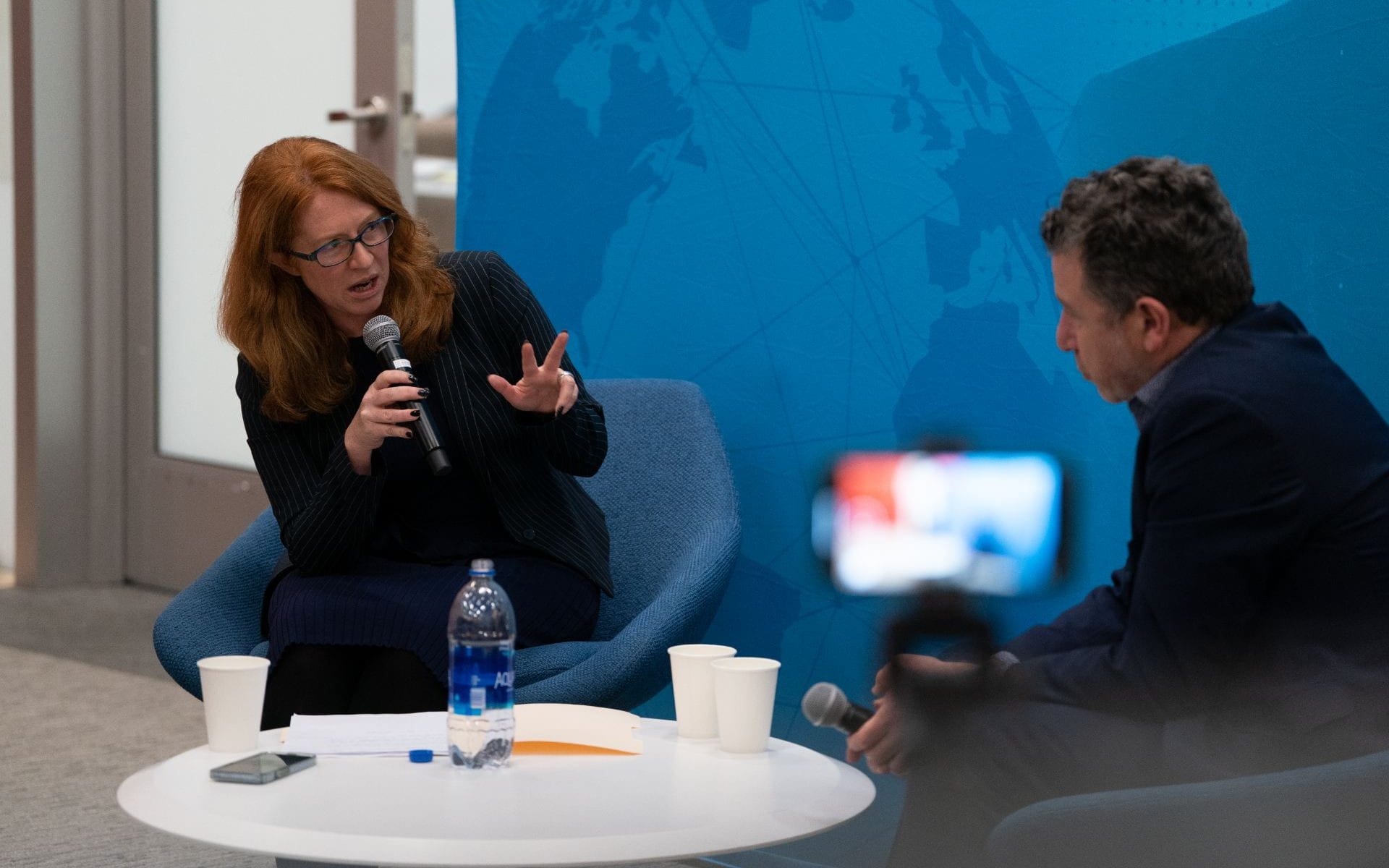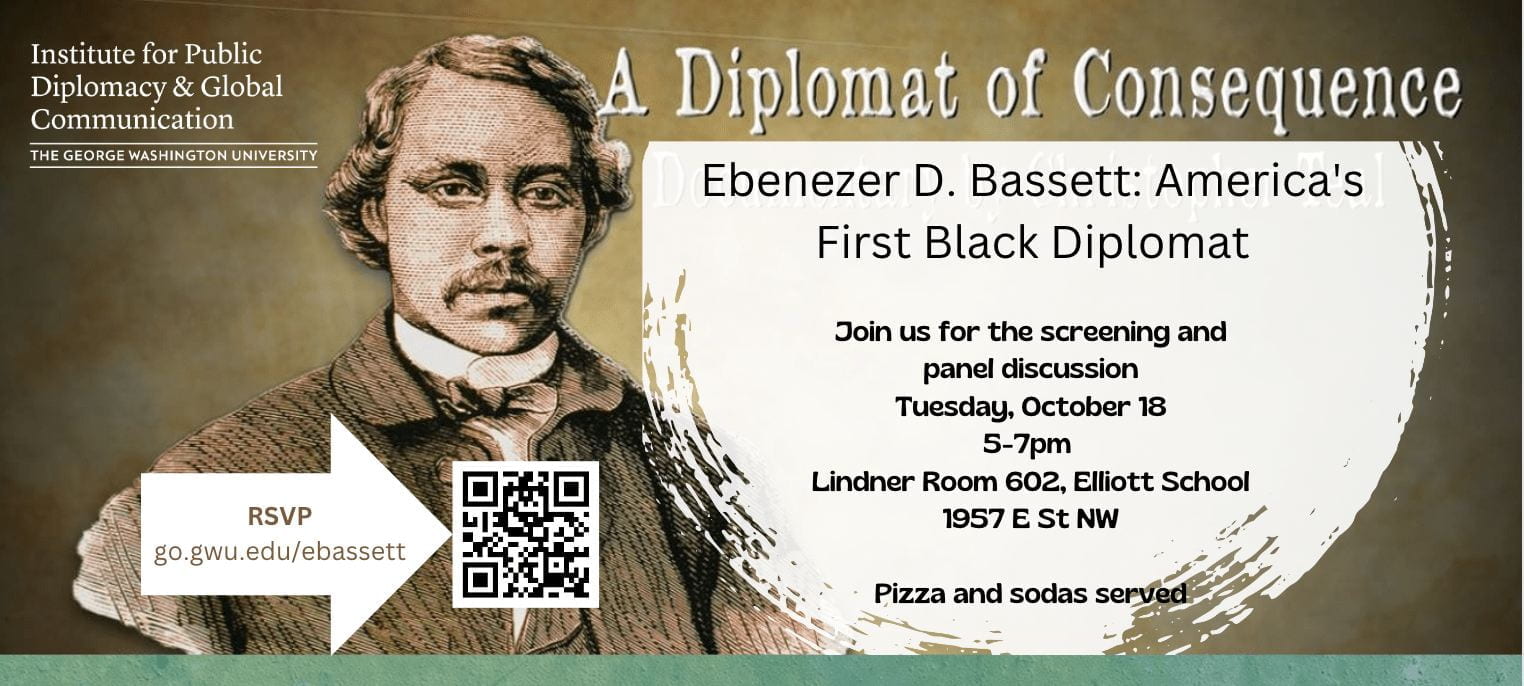By Yvonne Oh, IPDGC Program Coordinator
At IPDGC’s 2022 Walter R. Roberts Lecture, Jodie Ginsberg president of the Committee to Protect Journalists confirmed that journalists all over the world continue to work under threat of being jailed, harmed, or even killed.
Ginsberg’s presentation was on “Defending Press Freedom: Protecting Journalists Around the World” at the George Washington University.

Ginsberg took on the leadership role in April 2022, after years of experience as a journalist and media advocate. CPJ is an independent, nonprofit organization that promotes press freedom worldwide. The organization works to defend the rights of journalists to report the news safely and without fear of reprisal.
Elliott School Dean Alyssa Ayres introduced Ginsberg while the Director of the School of Media and Public Affairs, Silvio Waisbord, moderated the discussion.
IPDGC Director William Youmans welcomed all to the event, noting that the lecture is a tribute to Walter R. Roberts for whom “media and the free flow of ideas were central to his career.”
The Walter R. Roberts Endowment seeks to inspire public diplomacy best practices around the world. Its goal is to expand the universe of public diplomacy practitioners through activities which blend theory and practice, enable dialogue among people from different backgrounds and institutions, and increase awareness of the importance of public diplomacy.
GW Today has more on the Lecture.











